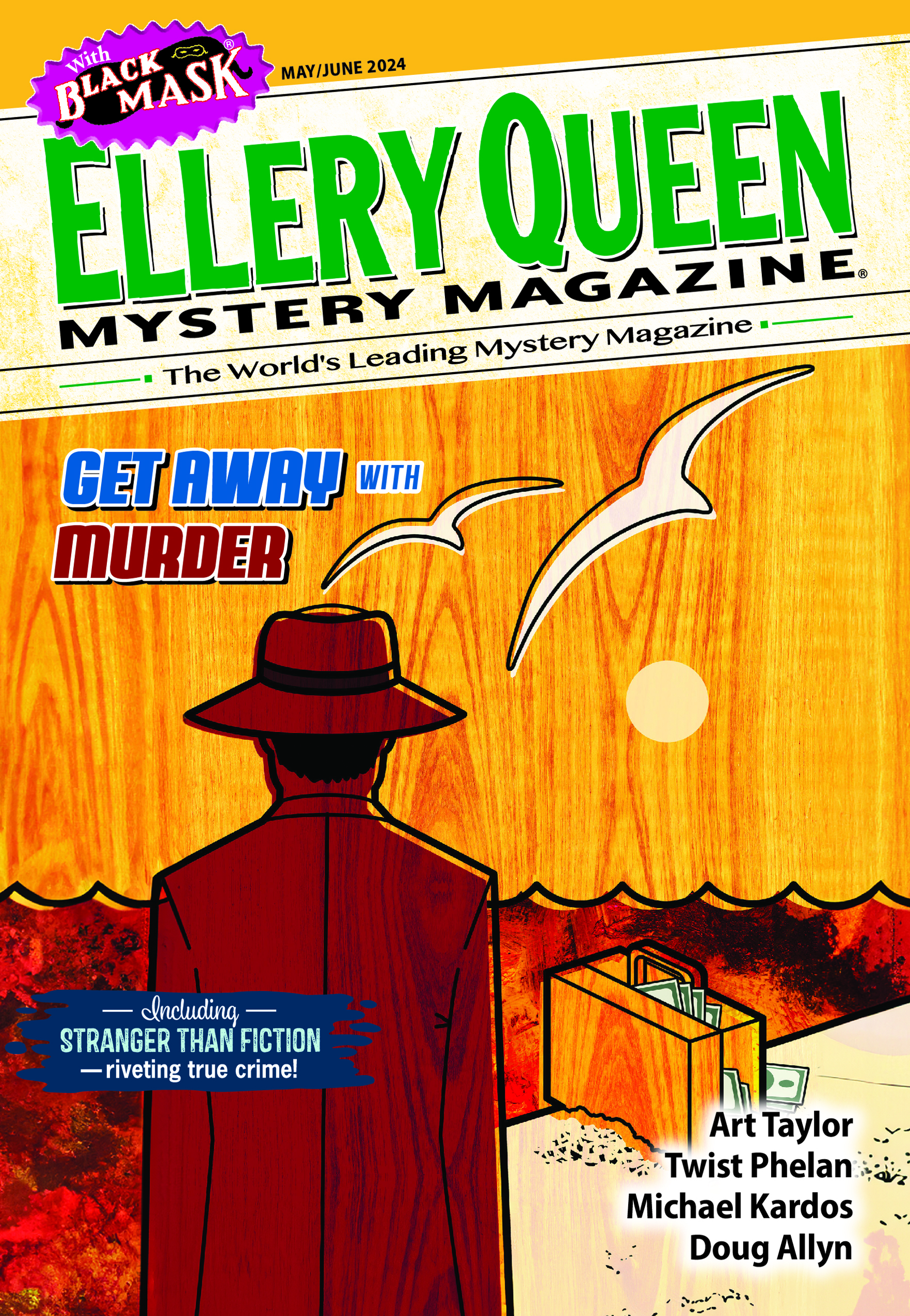Michael Guillebeau debuted in EQMM’s Department of First Stories in May 2011 with the story “A Study in Detail.” He has since produced two more stories for EQMM (the most recent August 2014’s “Crimes of Passion”) and a first novel, Josh Whoever, that Library Journal gave a starred review and named a Mystery Debut of the Month. The book was also a Silver Falchion Award finalist. In Michael’s fiction we always find characters driven by passion, so it was not entirely a surprise to learn, from this post, where he thinks the heart of the mystery story lies.—Janet Hutchings
My name is Michael Guillebeau and I’m a mystery writer and reader. That feels like the confession of a recovering addict or a presidential candidate, but there it is.
For the kind of mysteries I choose, the drug of choice is meaning and quest and the struggles of the trapped and battered little people in all of us. I may read the first chapter of a mystery for the hook, usually a crime or at least a wrong that must be righted. But—make no mistake about this—I read every other page in a quest for meaning that I often can’t find in the three-dimensional world. W.H. Auden said it best when he said that every detective story is a mirror image of the Quest for the Holy Grail.
Now look at that last sentence carefully, because fully understanding that sentence is essential to mystery writing. If you stop a mystery reader halfway along and ask why they’re turning the pages, they’ll talk about the hook, and tell you that they want to see who committed the murder, or see if the hero can save the damsel. But that’s the Holy Grail and not the Quest. Frankly, mystery readers don’t give a damn about the Grail, no matter what they say. Every day, we read about murders and danger and crime in the newspaper, and we stack the paper in the recycling bin and go on largely unaffected.
But the lack of connection to the meaning of these things bothers us on some level, so when we read a good mystery story, we fight to be in the Quest itself. The Grail gives the Quest purpose and focus, but the nobility of the story—and the real reason we read mystery—must be in the Quest itself, if we want a mystery story to burn a hole in our hearts.
Dashiell Hammett wrote about the search for a statue of a black bird—but what we remember is the meaning of loyalty to your partner. Robert Parker wrote so much about the meaning of friendship between Spencer and Hawk and Susan that he was often accused of forgetting the mystery entirely.
Pull out an old Travis McGee mystery and skip all the parts about the rusty knight and why he cares, or read Harry Bosch and take out just one line, “Everybody matters or nobody matters.” See if you want to read another book like that.
So, while we mystery fans want Sir Galahad to hold the Grail in his hands on the last page, we read everything up to that page for the Quest itself. We read to feel—not see, but feel—what it’s like to fight every battle and stand for something noble. Where do we find the nobility? I’d argue that for us mystery fans the nobility is in the kind of people our heroes (and ourselves, at least in our fantasy world) stand for and with.
Six hundred years ago, an old poet named Hafez wrote a poem:
The small man
Builds cages for everyone
He knows.
While the sage,
Who has to duck his head
When the moon is low,
Keeps dropping keys all night long
For the
Beautiful
Rowdy
Prisoners.
As a mystery fan, my fascination is with the rowdy, beautiful prisoners, and the rusty, self-doubting knights who drop the keys and wonder what it all means. The ones who keep on taking the next step because they’re committed to the Quest even if it hurts and everyone stands against them. We want to journey with the people who are on quests no matter the opposition, and we want to stand with the hungry and the searchers. The beautiful ones too rowdy to put up with the crap we all put up with. That’s what I’m in this for.
There’s a non-fiction book out now, called The Happiness of Pursuit. The author set out to visit every country on earth by the age of thirty-five, for only his own personal reasons. He succeeded, and met a lot of other people along the way on other quests large and small. He learned a lot about the meaning of the human need for quests. His conclusion: That finding a quest, and pursuing it, is itself a major source of satisfaction and meaning in our lives.
And so, I think, that is what we mystery writers must give our readers: a quest, large or small, which has a meaning that is personal, driving, and immediate for our characters and the readers who become them for a little while. And that is why mystery stories bring satisfaction to my life, and why I write them.
I am Michael Guillebeau, and my largest and most satisfying nonwriting quest has been the raising of three kids. Other parents who have embarked on this quest know that mine, like theirs, was filled with heroes and villains and dragons and knights in very rusty armor and long dark nights filled with self-doubt.
One of those kids is Chris Guillebeau, the author of The Happiness of Pursuit. And the story of how a once dirty-faced, strong-willed little boy turned into that man is the biggest mystery I ever hope to encounter.
Here’s Chris and his proud papa with their books.

Chris and Michael Guillebeau


Great story. Thanks.
Pingback: IT’S ALL ABOUT VARIETY | SOMETHING IS GOING TO HAPPEN
What a refreshing perspective. Thanks, Michael.